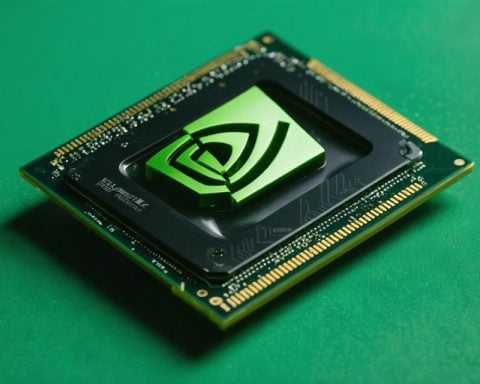Analyzing Tesla’s Potential in a Shifting Landscape
Tesla, Inc. continues to be a central figure in the stock market, showing impressive gains over the past five years. Under the leadership of CEO Elon Musk, the electric vehicle (EV) maker has gained considerable traction, especially following the recent political shifts in Washington. With Tesla’s valuation soaring after the election, the company is not only becoming one of the largest in the world but also sparking debates among investors regarding its future prospects.
Tesla’s Strengths lie in its pioneering status and strong brand in the electric vehicle arena, where it competes fiercely with companies like BYD. Tesla’s extensive network of fast chargers and a diverse range of models contribute to its competitive edge. Furthermore, the company is focusing on advancing its autonomous driving technology, which could solidify its position as a leader in the industry, despite competition from tech giants.
However, the Bear Case raises important concerns about Tesla’s future. Recent financial reports revealed a downturn in vehicle sales for the first time in over a decade, coupled with challenges in revenue growth tied to the auto industry’s lower margins. Additionally, with the possibility of reduced government support under the current administration, the demand for EVs could face hurdles. The company’s stock is currently considered expensive, with a price-to-earnings ratio that raises eyebrows among investors.
In the end, while Tesla holds immense potential, prospective investors may want to wait for clearer signals of growth before diving in.
Broader Implications of Tesla’s Trajectory
As Tesla continues to navigate its way through a fluctuating market, the implications of its journey ripple far beyond the confines of the automotive industry. The rise of electric vehicles is not only revolutionizing personal transportation but also reshaping global economic dynamics. Countries around the world are investing heavily in electric infrastructure, driven by increasing environmental regulations and shifting consumer preferences. This shift has the potential to create millions of jobs in new sectors, such as battery manufacturing and sustainable energy.
Moreover, the push towards decarbonization is gaining momentum. Tesla’s advancements in battery technology can lead to innovations that significantly reduce the carbon footprint of transportation, an essential goal to combat climate change. If successful, these technologies could pave the way for a future dominated by renewable energy, impacting energy markets and reducing dependence on fossil fuels.
Looking ahead, we may witness a rapid evolution in consumer behavior and urban planning. As EV adoption grows, cities are rethinking infrastructure to accommodate charging stations and promote sustainable practices. This change could encourage local economies to thrive on green initiatives while tackling urban pollution.
In summary, Tesla’s trajectory embodies a transformative journey that holds substantial societal and economic significance. Its influence on environmental sustainability and the emergence of new markets may set the standard for future industries—making it a pivotal player in defining our global future.
Will Tesla Maintain Its Edge in a Competitive Market? Key Insights for Investors
Tesla, Inc. is not just a leader in the electric vehicle (EV) market; it is at the forefront of technological innovation and market trends that could define the future of transportation. As the company continues to navigate a shifting economic landscape, it becomes important for current and potential investors to understand its strengths, challenges, and overall market context.
Use Cases and Applications
Tesla’s vehicles are not only popular for personal use; they also have significant applications in various sectors. Fleet management companies are increasingly adopting Tesla vehicles due to their sustainability aspects, lower operational costs, and integration of advanced software for efficiency tracking. Furthermore, Tesla’s technology is evolving to support energy management solutions for businesses, diversifying its income streams beyond automotive sales.
Innovations and Advancements
Tesla is heavily invested in research and development, leading to innovations like the Full Self-Driving (FSD) beta, which aims to redefine personal and shared transportation safety and efficiency. The introduction of the Cybertruck and the Roadster 2.0 are anticipated to expand Tesla’s market reach significantly, attracting different consumer segments and potentially increasing market share.
Market Analysis and Trends
The global EV market is projected to grow exponentially, with an expected compound annual growth rate (CAGR) of over 20% through the next decade. Tesla’s ability to scale production while maintaining quality will be critical in capturing a substantial share of this market. Competitors such as Rivian and Lucid Motors are gaining traction, but Tesla’s established brand, infrastructure, and technology give it a unique advantage.
Security Aspects
As with any technology-driven company, security remains a paramount concern. Tesla has faced scrutiny regarding cyber vulnerabilities, especially related to its autonomous driving software. The company has invested in advanced cybersecurity protocols and actively engages in bug bounty programs to enhance the security of its systems.
Pricing and Market Position
While Tesla has consistently been viewed as a premium brand, its pricing strategy may evolve to capture a broader audience. With ongoing price adjustments, the company aims to make its vehicles accessible to a wider range of consumers, which could boost overall sales volume despite the lowered profit margins on entry-level models.
Pros and Cons
Pros:
– Strong brand recognition and customer loyalty.
– Continued investment in R&D for future technology.
– Diverse product portfolio that includes energy solutions.
Cons:
– Recent declines in vehicle sales raise investor concerns.
– High stock valuation compared to traditional automotive companies.
– Potential political and regulatory changes impacting EV subsidies.
Future Predictions
Market analysts suggest that Tesla’s commitment to innovation and expansion will be crucial in the coming years. As traditional automotive manufacturers ramp up their EV offerings, Tesla will need to leverage its technology and brand reputation to defend its market position. The upcoming years could see a transformative shift as the balance between quality, price, and technological advancement dictates success in the EV sector.
In conclusion, while Tesla’s trajectory appears promising, careful analysis and monitoring of market dynamics are essential for investors looking to capitalize on opportunities within the shifting landscape of electric vehicles. For more insights, visit Tesla’s official page.


















